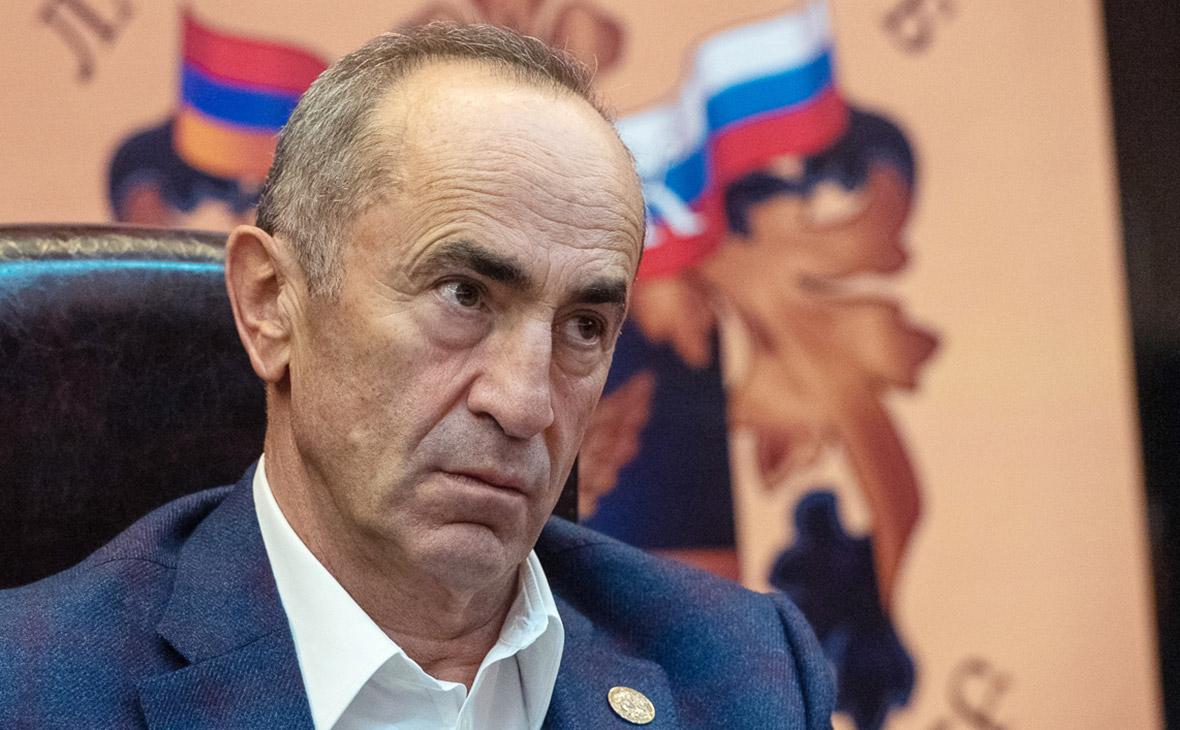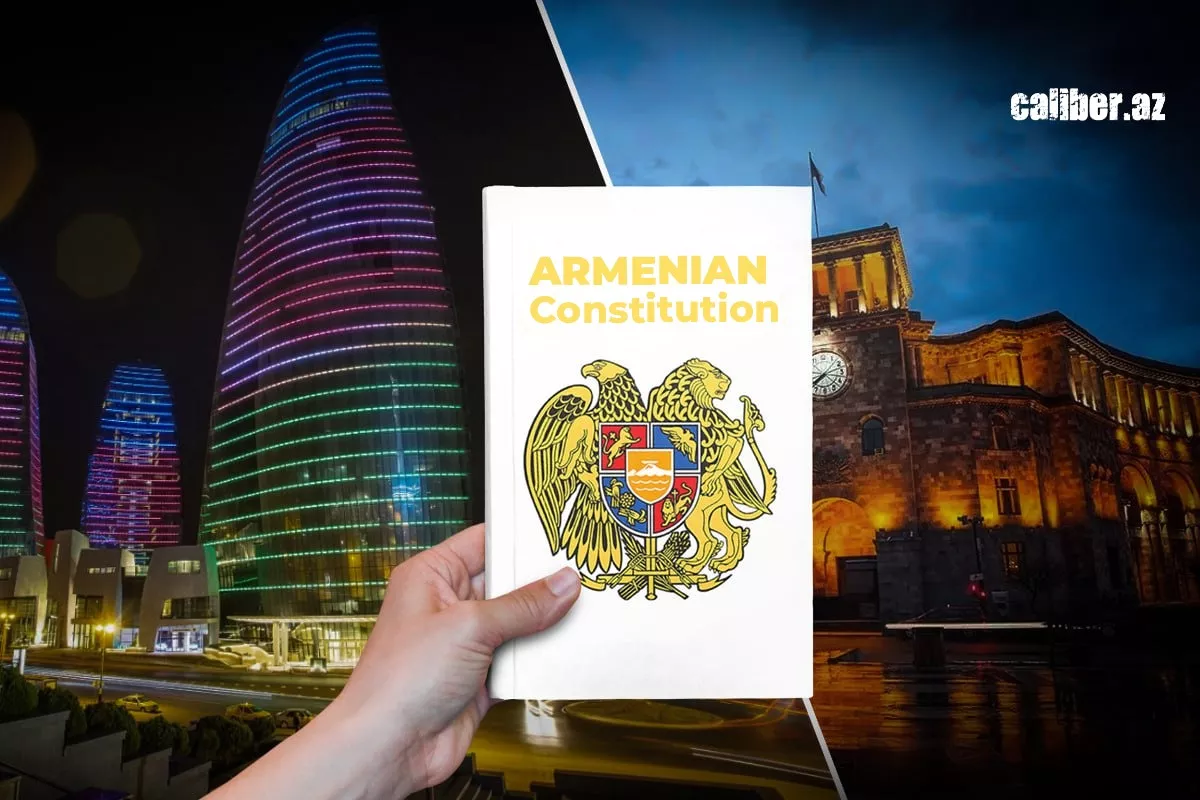The stench from the political morgue The leader of the Karabakh clan speaks again
Robert Kocharyan, Armenia’s second president, has given an interview to Armenian media. Intended to revive public trust in his persona, the conversation—due to the dullness and staleness of its talking points—comes across more as an awkward attempt to appear like a tough guy.
"Today, Armenia is incapable of ensuring its security in this region on its own. First and foremost, we need to focus on the army, become more organised, and build relationships with potential geopolitical partners who can fill these gaps," declared the head of the Karabakh clan, delivering one of his supposedly profound yet self-evident conclusions. Continuing this thought, Kocharyan promotes the idea that Armenia should, from a strategic standpoint, cooperate not with European countries, but with Russia. In fact, most of his remarks were dedicated to relations with Russia. They were delivered in such a one-sided, pro-Russian tone that they seem more aimed at pleasing Moscow—despite the Armenian electorate’s growing dissatisfaction with it—than addressing the concerns of his own people.
This message is reflected, for example, in the following passage: “The issue of the occupation of Armenian territories [what exactly is he talking about? – Ed.] by Azerbaijan should have been resolved not through the CSTO [ Collective Security Treaty Organisation – Ed.], but through Armenian-Russian relations. You damage ties with a key CSTO member, and then complain that the CSTO didn’t help.” Or take this one: “We assumed the role of the offended party, but it was Russia that should have taken that stance after the Prague document was signed, because we nullified its mediating role—only to later invite it to mediate again.”

Kocharyan was equally uncompromising regarding the EU: “The EU has the European Commission, which can punish, fine, and impose its will on member states. If Armenia’s priority is sovereignty, then the farther it stays from the EU, the better.”
The “great strategist” also shared his thoughts on Türkiye: “The Ottoman dream of Türkiye is experiencing a new awakening. We are a foreign body on the grand political canvas Türkiye is now clearly shaping. We need to build good relations with this country, but without giving in to blackmail.”
Notably, this is the first time Kocharyan has openly acknowledged the need to build good relations with “this country.” His wording also subtly reflects an understanding that Türkiye is a country with which Russia, under no circumstances, wants to escalate tensions. Having said that, the Karabakh gangster suddenly fancied himself, if only for a moment, as a global powerbroker: “No one is planning to seize Mount Ararat, no one is entertaining such grandiose adventurism. Ararat is our symbol, a part of our national identity. The current authorities are dismantling our perception of our own symbols,” he declared.
Here, Kocharyan loses touch with reality. No one in Türkiye is genuinely concerned that Armenia will try to seize Mount Ağrı. However, the very fact that this Turkish mountain is depicted on Armenia’s state emblem is an act of disrespect towards another sovereign state—one fundamentally at odds with the concept of good-neighbourly relations. Ultimately, this entire issue could end badly for Armenia, not for Türkiye. After all, it is precisely the fear for Armenia’s statehood that drives Prime Minister Pashinyan to raise such matters.
And finally, Kocharyan took aim at the sitting prime minister: “I consider Nikol Pashinyan the Einstein of corruption. ANIF [Armenian National Interests Fund – Ed.] is a whole new chapter in the story of corruption. The recent kindergarten cases are child’s play compared to 65 million dollars.” I don’t know—maybe in Armenian Kocharyan’s statements sound bold and provocative, but in translation, all that reaches the ear is a feeble rhetorical burp that not even the name of a great scientist can liven up.
Curiously, not a word was said about Karabakh by Kocharyan’s weary lips. This suggests one of two things: either the Karabakh issue is no longer a red line for Armenian society, or the public simply doesn’t want to hear anything about it from representatives of the Karabakh clan. In reality, it’s likely a combination of both.
Yes, Armenian society still clings to the idea of “miatsum” (unification) out of inertia, and we may well see a scenario in which it votes in a national referendum against removing territorial claims from Armenia’s Constitution. But this would be a passive, negative act—a kind of hysterical door-slam born of the frustration of being powerless to change anything. It will not be a constructive move (not in the ethical sense, but in the sense of action), because Armenia no longer has the resources to pursue one. And Azerbaijan remains ever vigilant.

Understanding this, Kocharyan confined his remarks to what he sees as the preferable direction for Armenia’s foreign policy. Paradoxically, however, Kocharyan—using Pashinyan’s own terminology—spoke not of a “mythical Armenia,” but of a “real” one. And in a broader sense, this can be acknowledged as something of a phenomenon.
All of the above only reinforces the fact that Kocharyan is a political corpse. He no longer knows what tone to strike to sound convincing. He cannot make his speech forceful and emotionally charged, full of sharp assessments and paradoxical insights—because he knows he might come off as laughable. Nor does he want to be overly cautious and measured, fearing he’ll appear toothless. The result is something average and uninspired, with forced attempts at originality that provoke neither intellectual engagement nor emotional response.
And yet, throughout history, it has always been emotion that has moved the masses. In this sense, Pashinyan’s hysterical outbursts in parliament strike a far deeper chord with broad segments of the population than the efforts of a Karabakh thief and terrorist trying to play the role of wise “father of the nation.”








